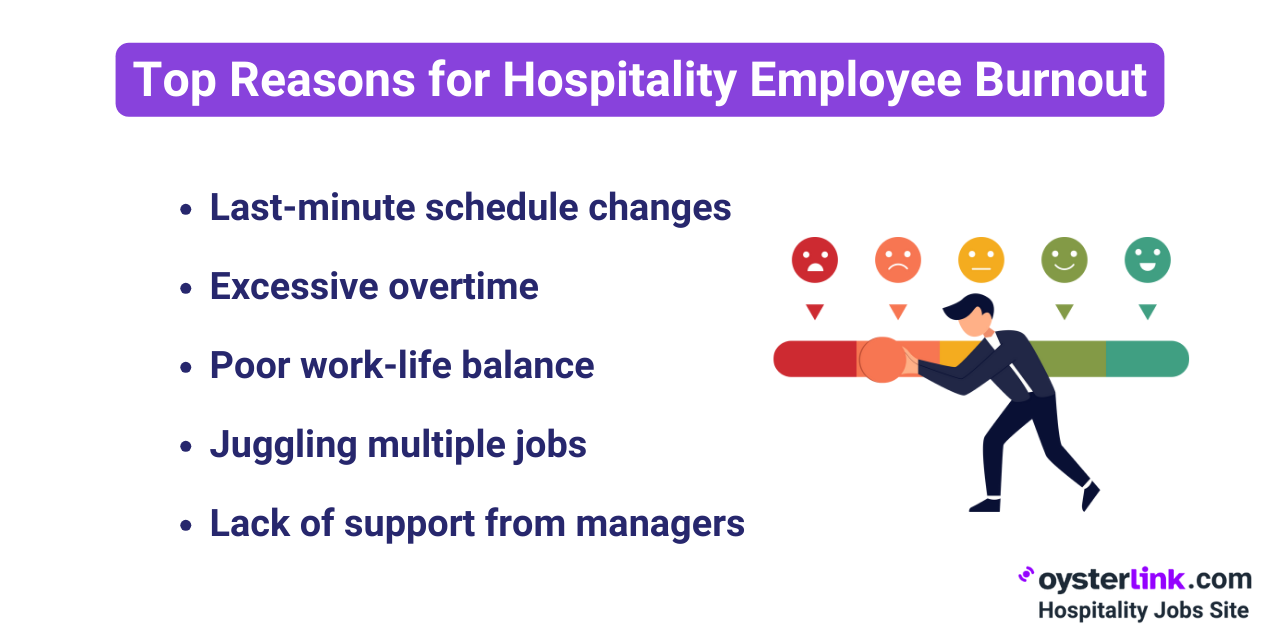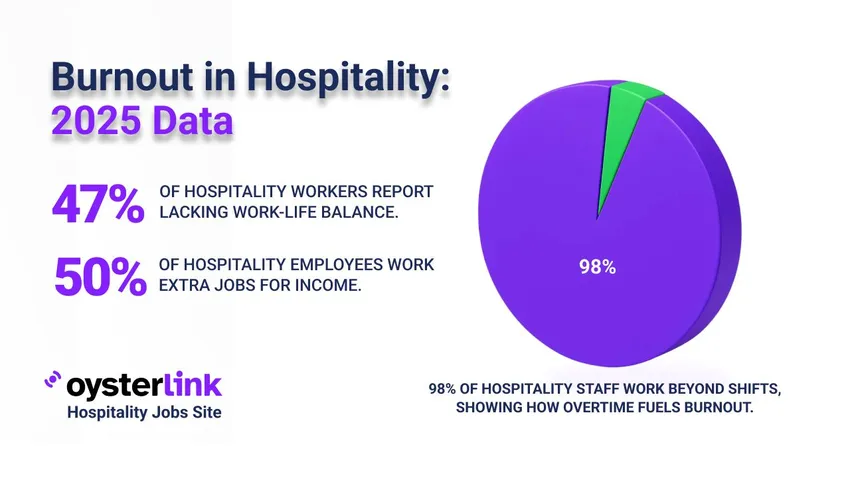Burnout in hospitality continues to rise, affecting workers in hotels and restaurants alike.
Here you’ll find actionable tips to help leaders boost morale and keep staff engaged.
Overview of the Latest Burnout Statistics in Hospitality
The hospitality industry has one of the highest burnout rates among service-oriented sectors.
In fact, a recent study found nearly half (47%) of hospitality frontline managers in the U.S. feel burned out.
On top of that, 68% of those managers said their team members have directly told them about feeling burned out, too.
Even more concerning, 64% of managers said employees have quit specifically due to burnout.
Source: The Interview Guys
Employee demographics most affected by burnout
Younger workers (ages 18 to 29) in hospitality and those in frontline positions show the highest burnout rates. Among these, 68% report being “very stressed” at work.
Women experience slightly higher burnout than men, with 65% of female hospitality employees reporting symptoms versus 60% of their male counterparts.
Employers who actively address burnout in these groups are more likely to retain talent and build a healthier, more sustainable workplace.
Primary Causes of Burnout in Hospitality
Several common issues are pushing hospitality workers, and their managers, to the brink:
- 69% of shift workers in hospitality say their schedules often change without warning.
- Nearly all (98%) employees report working overtime, with 75% saying they aren’t given enough prior notice.

- About half (47%) of hospitality staff don’t feel they have time to recharge.
- 50% of hospitality workers take on second or even third jobs just to cover basic expenses, which adds to their exhaustion and stress.
- Around 67% of staff say their requests for shift adjustments are often ignored or dismissed.
Impact of Burnout on Employee Engagement and Turnover
Burnout plays a major role in declining employee engagement across the hospitality industry.
Recent studies show that only about 33% of hospitality workers feel engaged with their jobs, a rate lower than the general workforce.
Source: Create & Grow
High burnout may also directly contribute to high turnover. In fact, hospitality averages 74% annual turnover, well above other industries at 12–15%.
Within hospitality, hotels face an even higher turnover rate of 105%.
Left unaddressed, these challenges can affect service quality, lower guest satisfaction and ultimately hurt the business’s bottom line.
Mental Health Challenges Among Hospitality Workers
A survey found that 40% of employees in this industry said their work negatively affects their mental health.
More than half (54%) say there isn’t enough training on mental health and well-being, and 38% feel unprepared to handle high-stress situations.
Those in guest-facing roles, such as Servers, Baristas and Receptionists, are especially vulnerable.
They’re nearly twice as likely to experience depression and one-third more likely to suffer from anxiety compared to other workers.
See also: Understanding Burnout vs. Stress: A Guide for Hospitality Professionals
Strategies To Combat Burnout in Hospitality
Here are some measures that hospitality employers should consider implementing:
- Leadership training for managers to better support their teams
- Mental health support programs that provide access to counselors
- Flexible scheduling options and workload adjustments
- Incentives like free gym memberships or healthy meals during shift
Source: PR Newswire
See also: Perks at Work: What Benefits Make Your Employees Happy?








Loading comments...